Interdisciplinary Perspectives on the Changing Ocean
“Diving into Change”: First Interdisciplinary FYORD Summer School
About 30 German and international PhD and Masters students gathered from 25 to 30 August at the GEOMAR Helmholtz Centre for Ocean Research Kiel and the University of Kiel (CAU) to learn about the ocean from different perspectives and to network.
The Summer School focused on diverse topics such as the impact of natural events on coasts and the impact of human activities on the oceans. It covered coastal research in the North and Baltic Seas, how transdisciplinary methods can contribute to better protection, the carbon cycle, deep-sea exploration and marine natural hazards, and atmosphere-ocean interactions. Workshops also addressed controversial issues such as the potential for CO2 storage in the ocean and proposed deep-sea mineral extraction.
For five days, the young scientists deepened their knowledge through lectures and practical workshops. During a mudflat walk at the west coast near the Research and Technology Centre (FTZ) in Büsum, part of Kiel University, the participants experienced salt marsh and mudflat ecosystems first hand. They studied ecosystems under controlled conditions in the benthocosms at the Kiellinie, and gained practical experience in sediment core description at GEOMAR's Central Core Repository.
‘Diving Into Change: Exploring Interdisciplinary Marine Science Perspectives on Our Changing Oceans’ was the title of the Summer School. It brought together experts in physical oceanography, marine biology, marine biogeochemistry, seafloor dynamics and marine resources, transdisciplinary research, international law and environmental philosophy.
For the first time the Summer School was organised by postdocs of the FYORD programme and the Postdoc Centre PACT at GEOMAR. FYORD stands for Foster Young Ocean Researcher Development and is a joint programme of the CAU Research Focus Kiel Marine Science (KMS) and GEOMAR.
“The concept is a complete success,” said Dr Christine Haunhorst, coordinator of FYORD, who supported the organising team together with Dr Christel van den Bogaard, head of the Postdoc Academic Career Support Centre (PACT) at GEOMAR. “We are witnessing a lively and fruitful exchange and are happy to see new networks being formed.”
“We are delighted that our programme was able to attract such diverse disciplines as computer science and the humanities. This change of perspective was very enriching for us, especially as the participants also took on the role of experts,” said Dr Edel O'Sullivan, who, together with Dr Mariana Andrade, Dr Babett Günther, Dr Franz Kanngießer and Dr Margarita Liadova, formed the organising team of postdocs. “The group was just fantastic - very motivated and eager to learn, whether it was through lectures, field trips or laboratory work,” added Liadova.
The postdocs agree that the organisation was worth it and they plan to offer another Summer School next year. “Several participants have already asked if they can register now for next year's Summer School,” says PACT coordinator Christel van den Bogaard with a laugh: “I think we should start planning again soon.”
Background:
FYORD (Foster Young Ocean Researcher Development)
The FYORD programme is a joint initiative of Kiel Marine Science (KMS, CAU) and GEOMAR to support the development of young researchers in the marine sciences, from master students to PhD students and postdocs, and to help them take the next step towards a successful career in the marine sciences.
PACT (Postdoc Academic Career Support)
The Postdoc Centre PACT at GEOMAR supports postdoctoral researchers in developing career perspectives within and outside academia. PACT offers training, events, mentoring programmes, counselling and individual coaching.
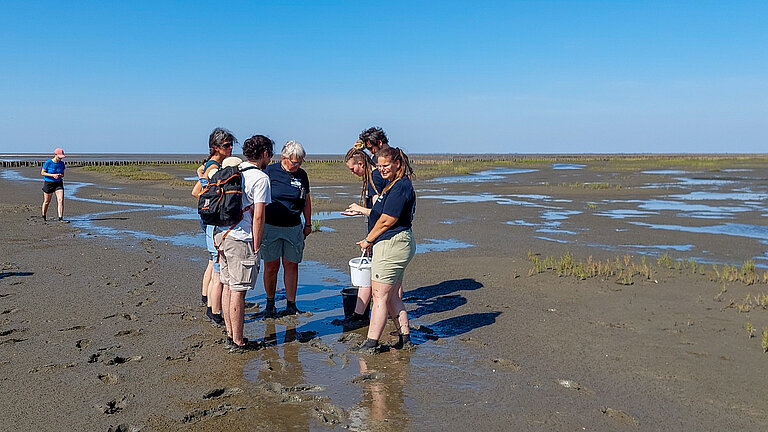
The first summer school of the Kiel junior research programmes FYORD and PACT invited doctoral and master students from Germany and abroad to deepen their knowledge of the ocean. Photo: Christine Haunhorst, CAU
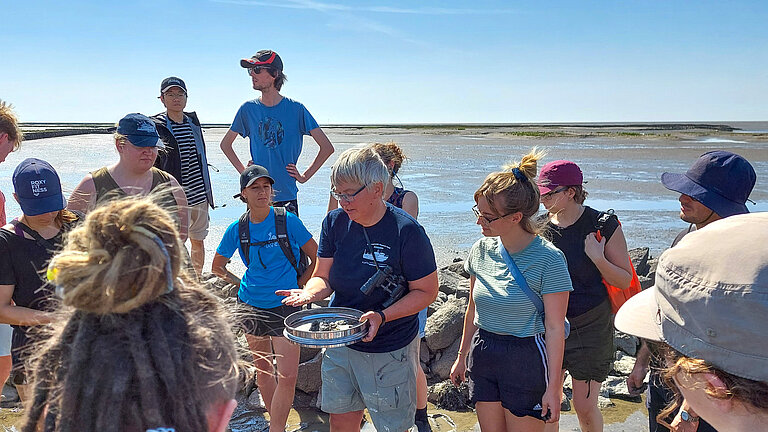
Wadden Sea ecosystem: The Summer School also took the participants to the west coast, to the Research and Technology Centre of Kiel University in Büsum, from where they headed out into the Wadden Sea. Photo: Christine Haunhorst, CAU
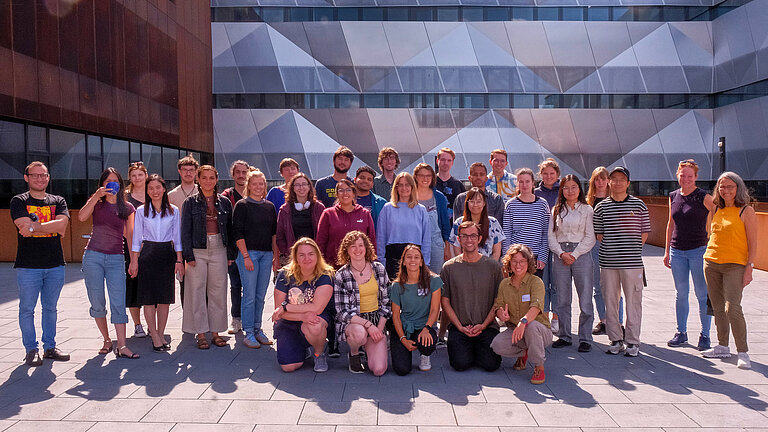
About 30 international participants from different scientific disciplines met at GEOMAR for five days to learn, exchange ideas and network. Photo: Insa Stolz, GEOMAR
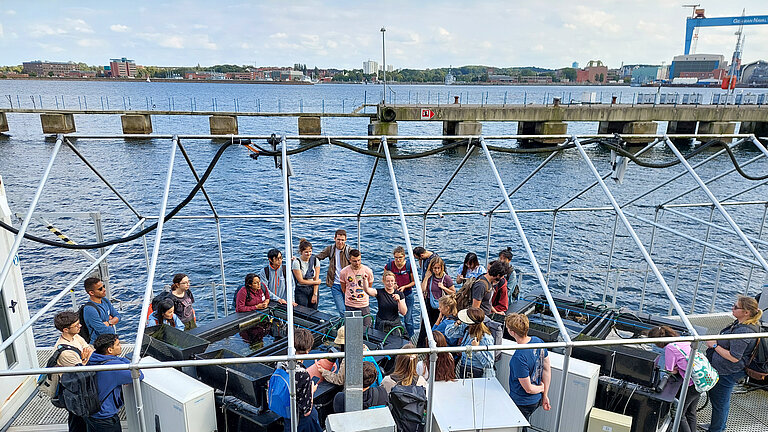
In GEOMAR's benthocosms on the Kiellinie, the young researchers studied ecosystems under controlled conditions. Photo: Christine Haunhorst, CAU
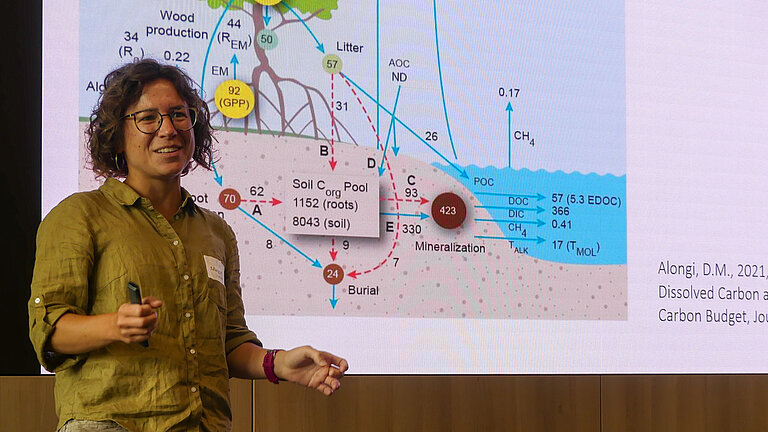
The carbon cycle was one of the many marine science topics on the agenda in the form of lectures and hands-on workshops. Photo: Insa Stolz, GEOMAR


